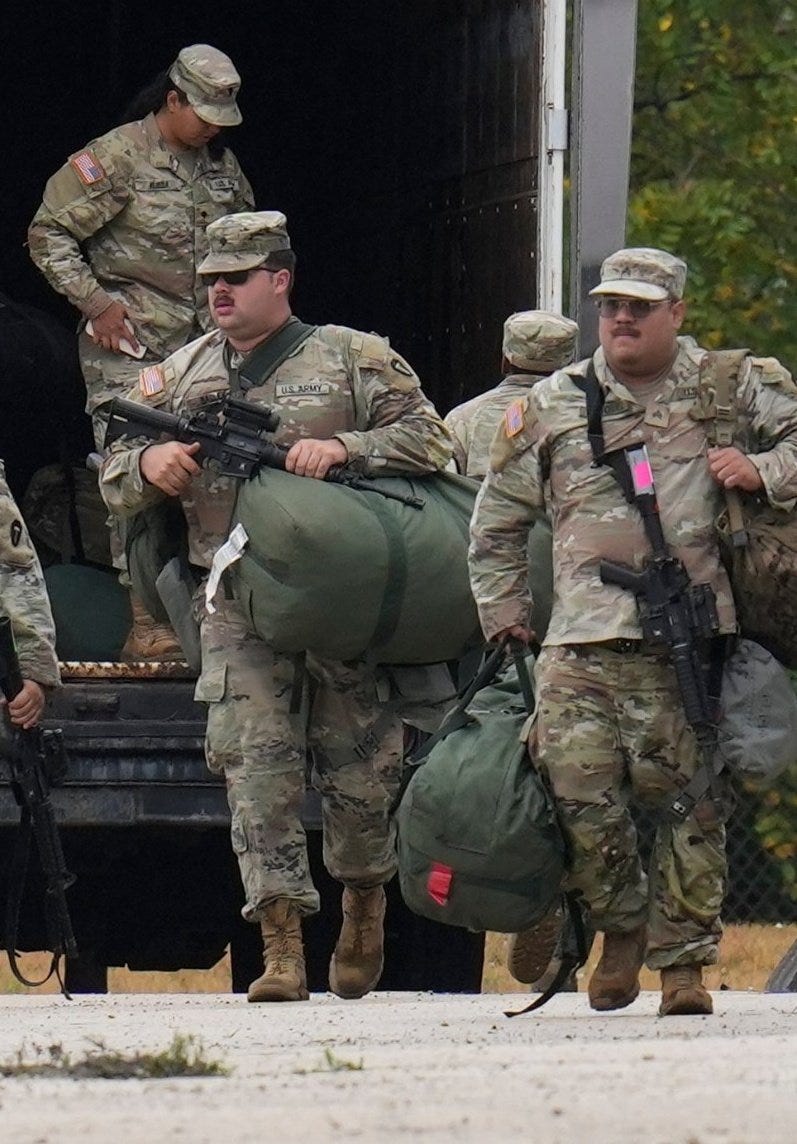Carolinas in My Mind: In North Carolina, Governor Stein has signed “Iryna’s law” which significantly limits cashless bail in the Tar Heel State. Despite the potential trap of signing a “first name law," which can often overreact to a single, terrible case, the governor signed the bill with significant reservations. The law is named after Iryna Zarutska who was murdered in August on a Charlotte train by a defendant who had 14 prior arrests in the county. Governor Stein was pleased that the new law directed the state’s judges and magistrates to “take a special look at people who may pose unusual risks of violence before determining their bail.” However, he criticized the bill for not fully considering a defendant’s ability to pay bail. He also criticized an amendment to the bill which directs prison officials to implement alternative execution methods in the state. Stein is concerned that the amendment could be used to bring firing squads back to North Carolina. None of the state officials connected this provision to Bill Belicheck’s performance as head football coach for the Tar Heels.
In South Carolina, they do have firing squads. And they use them.
In March, a squad of three corrections employees executed Brad Sigmon in the first such execution in the U.S. in fifteen years. Sigmon was convicted of the 2001 bludgeoning deaths of his ex-girlfriend’s parents. He choose the firing squad over other methods even though he knew the “three bullets would shatter his bones and destroy his heart.” His attorney said that his client’s “death was horrifying and violent.” Over the past 50 years, there have been about 1,600 executions in the U.S.. Only three have occurred by firing squad.
More Bail, eh?: Unwinding bail reform is even an issue north of the border. Prime Minister Mark Carney is now backing legislation to tighten bail and release provisions for violent or organized crimes. The legislation will change the burden of release from the government to the defendant to prove they can be trusted to be released. The bill will also toughen sentences for auto theft, or organized crime, and home invasion while also requiring more sentences to be served consecutively rather than concurrently. All of these reforms are coming from Canada’s Liberal Party.
Always Listening: Steven M. Hohn was convicted of multiple drug and firearm charges. While awaiting trial, he was detained at a private prison, where the Kansas U.S. Attorney’s Office obtained and listened to his attorney-client phone calls. Hohn later discovered this and filed a petition to vacate his judgment or reduce his sentence, arguing that the government’s intrusion violated his Sixth Amendment rights to privileged attorney communications.
The district court found that Hohn did not have a reasonable expectation of confidentiality in his attorney-client call because he knew the call would be recorded and did not follow the proper steps to privatize it. The court also concluded that Hohn waived the attorney-client privilege by making the call despite knowing it would be recorded. The United States Court of Appeals for the Tenth Circuit reviewed the case and overruled prior cases to find against Hohn. Previously, prejudice was presumed when the government intentionally intrudes upon the attorney-client relationship. The Tenth Circuit changed the rule to require specific prejudice related to the snooping, which is a very difficult standard that inverts the incentives in favor of governmental abuse. Under the new rule, prisoners (even those who have not yet been convicted), will be required to utilize all procedures available to them to assure that the privileged communications with attorneys remain privileged even in the face of governmental misconduct. Though several public interest groups asked the Supreme Court to review the case, this Wednesday the Court refused.
3 Rivers, 2 cops, 0 social workers: The City of Pittsburgh has discontinued its program that paired social workers with police on mental health related calls. It turns out “co-response” program was not an effective and efficient use of resources and limited police response to non-mental health emergencies.
“A lot of the time . . . these crises take over an hour to deescalate and mitigate, and police are kind of stuck in the car with us, and they could really be responding ... to emergencies that don’t require a social worker.”
Social workers will still respond to mental health emergencies, but in separate vehicles as a “secondary” response.
Stranger Stuff
Drop the bags your honor: Man spends the night hiding in a Missouri courthouse, collects items to sell, and, well, what else are you going to do . . . he “exited the courtroom at 7:15 a.m. wearing a judge’s robe and holding three bags.”
Pizza, Pizza: You know how Little Caesers has good deals on pizza but they sometimes try to charge you extra for sauce? This Kentucky woman was not about that $1 surcharge. She went on a rampage throwing items off of the counter and damaging a computer and the store register. She initially got away with it, but was later arrested when she was charged with another crime for throwing a brick at a car.
Antmen: Two Belgian teens were arrested for smuggling 5,000 queen harvester ants from Kenya. Apparently, the ants are prized by collectors for their unique behaviors and complex colony-building skills, traits that make them popular in exotic pet circles, where they are kept in formicariums.
The pigeon heist: As the Washington Post puts it: “Chinese tycoons turned pigeon racing into one of the world’s most lucrative sports. Then the thefts began.”
Deep Dish: Photos showed that the Texas National Guard had arrived in Chicago on orders to protect federal personnel and property. As they were not exactly young and thin, the internet was quick to give them nicknames: Meal Team Six, Operation Dessert Storm, the Green Buffets, the Gravy Seals, the Texas Nacho-nal Guard, Delta Forks, Semper Pi, the 101st Chairborne, and the Lap-Band of Brothers.




